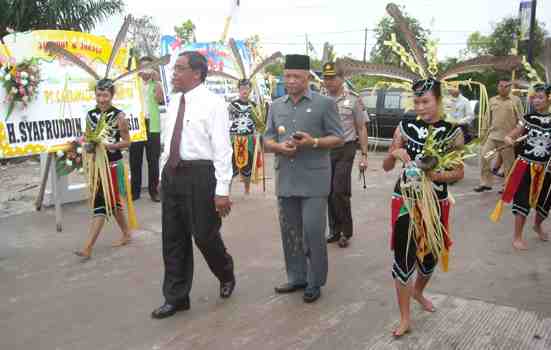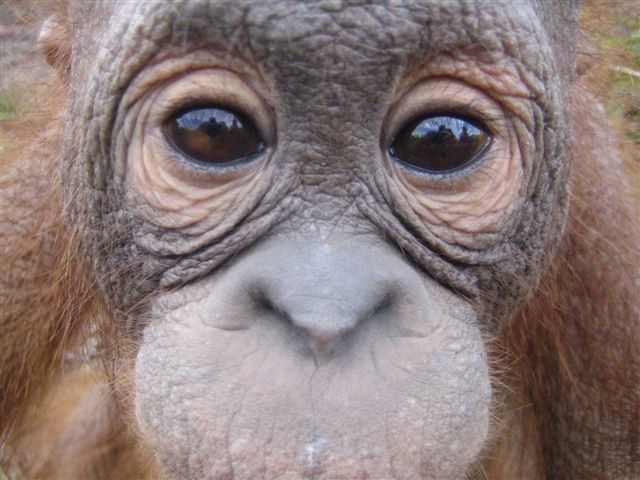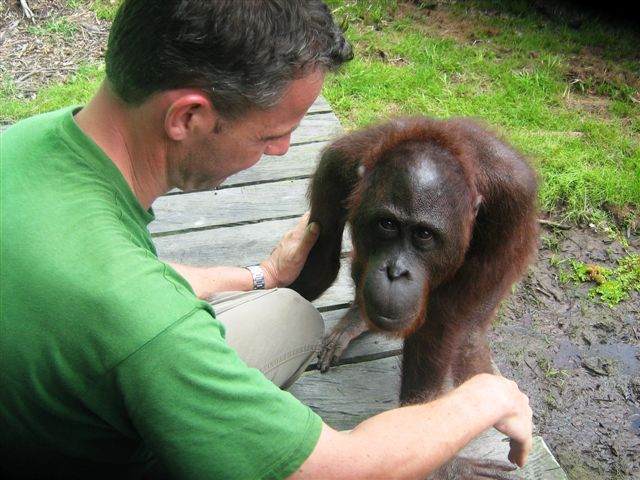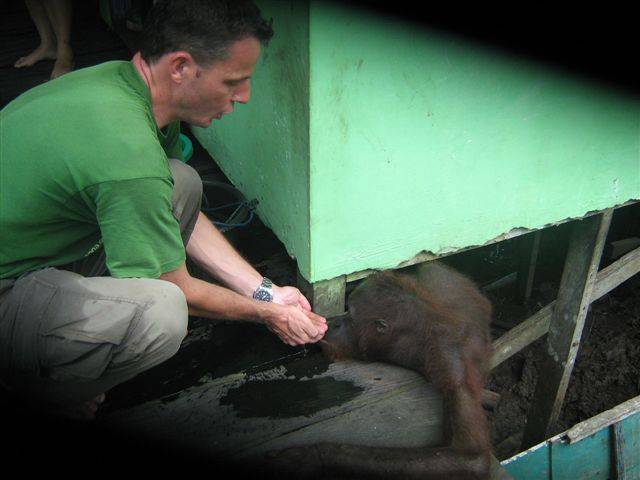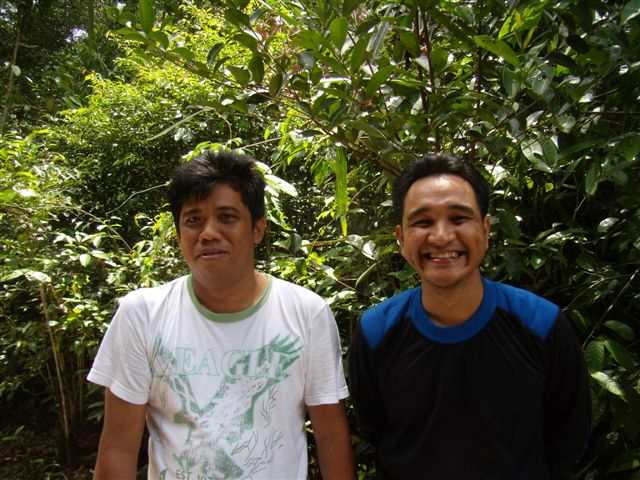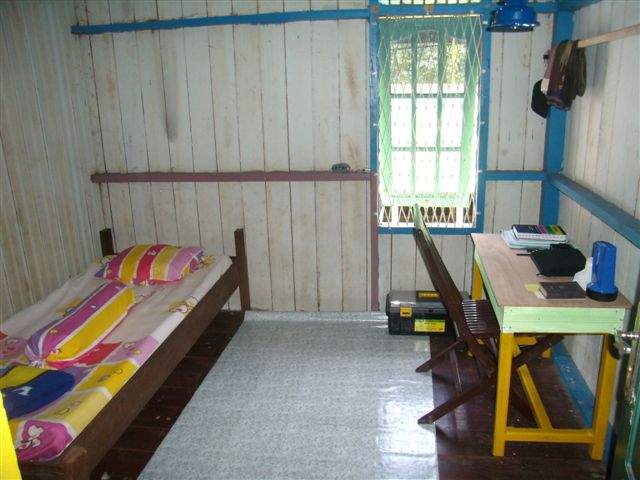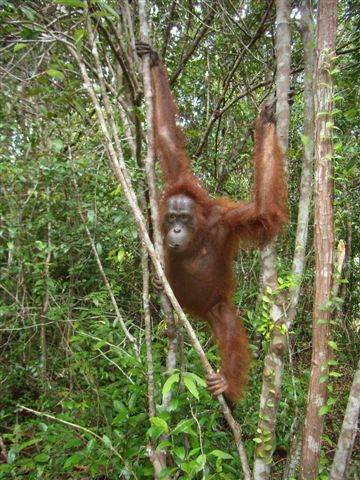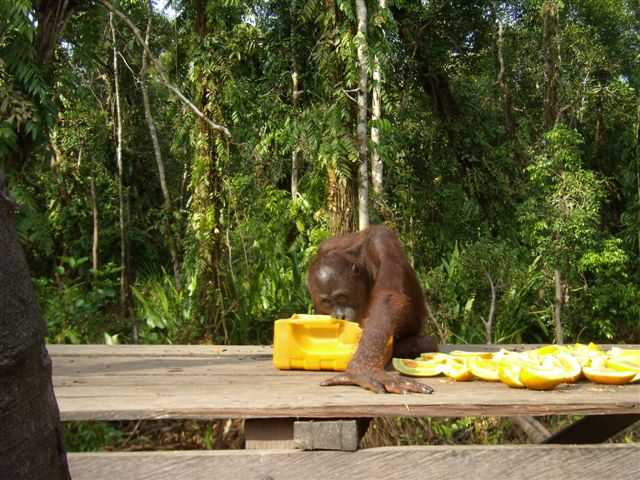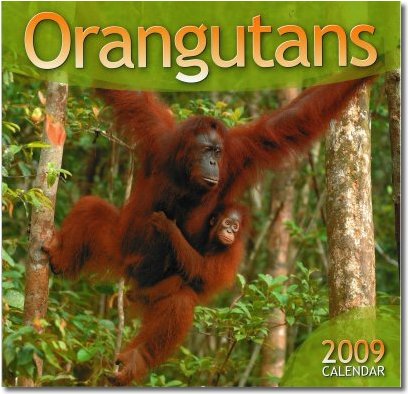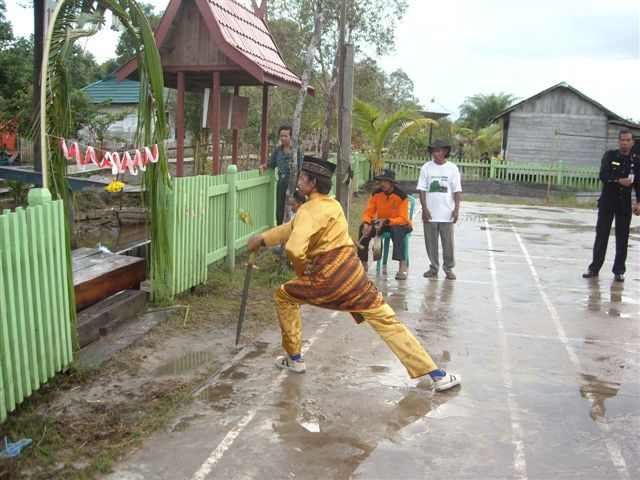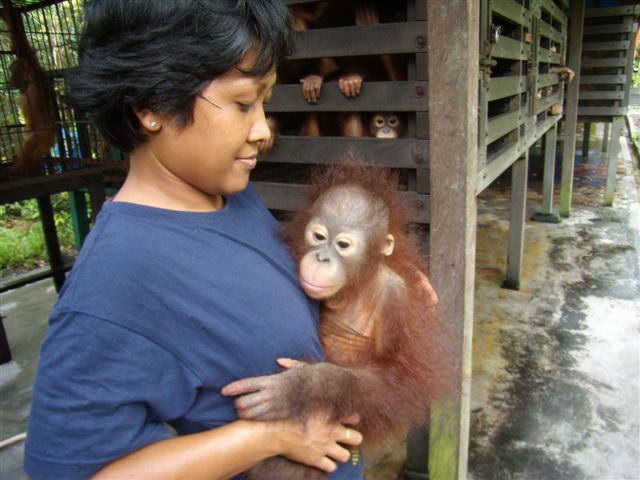The cost of the biofuel boom on Indonesia's forests.
The clearing of Indonesia's rainforest for palm oil plantations is having profound effects – threatening endangered species, upending the lives of indigenous people, and releasing massive amounts of carbon dioxide, writes Tom Knudson from Yale Environment 360, part of the Guardian Environment Network.
This interesting and informative article appeared in the guardian.co.uk, Wednesday 21 January 2009. Here is an extract from the article featuring Stephen.
"This isn't mowing your lawn or putting up a factory on the outskirts of town," said Stephen Brend, a zoologist and field conservationist with the London-based Orangutan Foundation. "It's changing everything as far as the eye can see."
Like tigers, orangutans — which are found only in Sumatra and Borneo — are also being nudged into increasingly isolated population units by rain forest destruction. Their numbers are dropping, too. But because there are more of them — between 45,000 and 69,000 in Borneo and 7,300 in Sumatra — extinction is not an imminent threat.
"They are still going to be in the wild, but in fragmented populations that can never meet," Brend told me one evening. "And if it's reduced to that, we've just lost everything. It's not only the orangutans. It's what you lose alongside them — the birds, insects, pollinators, all the environmental services that forests give, as well as a thing of beauty."
Indonesia has long been known for its heavy-handed logging and plantation clearing. Rain forests fall faster in Indonesia, in fact, than almost anywhere else on earth. But Riaz Saehu, a spokesman for the Indonesia Embassy in Washington, D.C., told me that under the country's new president, Susilo Bambang Yudhoyono, who took power in October 2004, the era of widespread clearing for oil palm may be coming to a close.
"There is an effort to reduce plantation expansion," Saehu said. "What we do now is basically to promote sustainability."
Many scientists are skeptical. "After 23 years there, I must say they can talk the talk but never walk the walk," Lisa Curran, director of Yale University's Tropical Resources Institute, told me in an e-mail. "The richest folks in Indonesia are owners of these oil palm plantations, so the corruption and patronage are linked to the very top of the food chain and power structures."
In 2006, Curran was awarded a so-called MacArthur genius award for her work on deforestation in Indonesia. "Oil palm is a disaster all the way around for biodiversity if converted from logged forest or peat swamp," she said. "Oil palm is fine if they actually put it on totally degraded lands – but they don't."
Read the full article




